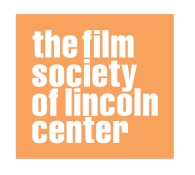By MCN Editor editor@moviecitynews.com
EUGENE HERNANDEZ JOINS THE FILM SOCIETY OF LINCOLN CENTER
EDITOR-IN-CHIEF AND CO-FOUNDER OF INDIEWIRE ANNOUNCED AS DIRECTOR OF DIGITAL STRATEGY
September 23rd 2010 – The Film Society of Lincoln Center today announced that Eugene Hernandez will join the Film Society of Lincoln Center in the newly created role of Director of Digital Strategy. “Eugene is an innovative leader in digital media and one of the most respected voices in film journalism today. His vast experience with developing digital platforms together with his passion for world cinema will help us create new ways of reaching audiences and expand our community as we prepare to open our new film center next year,” said Rose Kuo, Film Society of Lincoln Center Executive Director.
As Director of Digital Strategy, Hernandez will oversee all digital initiatives of the 48-year-old, non-profit, which produces the annual New York Film Festival and co-presents New Directors, New Films. Most immediately, Hernandez will work with current staff to hone the organization’s website and digital messaging for Film Society programs. Additionally, Eugene will work to identify and secure digital partnerships for Film Comment and help develop a Film Society digital channel.
“Over the fifteen years that I’ve lived in New York City, The Film Society of Lincoln Center has shaped my perspective on cinema. Film Comment Magazine and the organization itself have been crucial personally and professionally and informed the evolution of indieWIRE. I’m honored to be invited to join the team and excited to work with Rose Kuo, Richard Peña, Gavin Smith and everyone at The Film Society to chart its digital future,” said Hernandez.
As the Editor-in-Chief of indieWIRE, a company he co-founded in 1996, Hernandez was a leader in the world of entertainment journalism, developing the fledgling site into the influential enterprise it is today, as well as bringing film festival coverage to ever increasing prominence. Hernandez has also contributed articles to The Wall Street Journal Online, Variety, Screen International, FILMMAKER Magazine, and The Hollywood Reporter.
Hernandez has an extensive film festival and non-profit film and arts organization background including participating as a juror and panelist at Sundance, San Francisco and Tribeca film festivals; working as a consultant for the Creative Capital Foundation, and serving as a funding panelist for the NEA and ITVS. As a member of various selection committees, Hernandez nominated recipients for the highly influential Independent Spirit Awards.
Prior to founding indieWIRE, Hernandez spent 5 years at ABC-TV, ultimately working in its emerging Multimedia division as a producer of websites for ABC News and the annual Academy Awards and has served as an instructor at The New School in Manhattan.
The coup of hiring Hernandez is the latest in moves by the Film Society as the organization prepares for the 2011 transition from a single screen to a multi-screen programming strategy with the opening of the Elinor Bunin Monroe Film Center. The move also highlights the Film Society’s efforts to increase community outreach and growth. The Director of Digital Strategy is expected to play a significant role in fulfilling the organizations’ ambitious milestones for expanding audiences and engaging the untapped potential Film Comment and the annual programming.
ABOUT THE FILM SOCIETY OF LINCOLN CENTER
The Film Society receives generous, year-round support from 42BELOW, Audi, American Airlines, GRAFF, The New York Times, Stella Artois, The New York State Council on the Arts, and The National Endowment for the Arts.















Maybe people should protesting nigh lady gaga´s meat and move worrying virtually people deprivation…